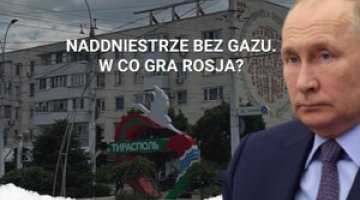Transnistria formalises a pro-Russian turn in foreign policy
On 20 November, Yevgeny Shevchuk, the leader of Transnistria, gave his stamp to a new concept of foreign policy of this breakaway republic. The document indicates complete economic, cultural and ultimately also political integration with the Customs Union, and with the Eurasian Union in the future, as the top priority. Russia, ahead of Ukraine, has been recognised as the key partner of Tiraspol.Relations with Chisinau have been accorded less significance and have been restricted to ensuring amicable ties between the two countries, security and the general protection of citizens’ interests in connection with the unsettled conflict. This document also confirms that socio-economic issues should be given high priority in the negotiations being conducted in the 5+2 format (Moldova and Transnistria as the conflicting parties and the EU, the OSCE, Ukraine, Russia and the USA as observers), and that any agreement reached in the negotiations must take into account the aspirations of the residents of Transnistria to gain independence. This concept also includes a declaration of enhanced military co-operation with Russia, though without any details provided.
Commentary
- The signing of this document gives formal confirmation of Transnistria’s turn towards Russian integration projects. It marginalizes the issues linked to unification with Moldova, thus de facto turning the Moldovan-Transnistrian negotiations into a platform designed for settling minor technical issues (for example, common car licence plates or railway connections via Transnistria). The decision to adopt this concept fits in with the withdrawal – since September this year – from the policy of Transnistria’s rapprochement with Chisinau, as seen in the first months of Yevgeny Shevchuk’s rule (he was elected ‘president’ at the end of 2011). Since that time, most meetings between representatives of the two sides of the conflict have been cancelled, with the consequence that practically all serious bilateral negotiations have been frozen. The re-imposition of customs duty on goods imported from Moldova via Transnistria in late September is further proof of deteriorating relations between Tiraspol and Chisinau.
-
If the guidelines of this concept are put into practice it will equate to a failure of the 5+2 negotiations, which were resumed a year ago. This is because Transnistria has been taking part in the talks in order to be recognised as a separate entity on the international arena and to be able to join Russian integration projects. This geopolitical approach is contrary to the stance taken by Chisinau, which has declared that its main goals are the unification of the country and European integration. In effect, no room for compromise has been left. Tiraspol’s affirmation of such a course precludes the continuation of unification talks. Furthermore, it appears that the failure of the negotiations will hinder the ability of Moldova to conduct reforms linked to European integration (the deep and comprehensive free trade area agreement and the visa liberalisation agreement).
-
Russian politicians in charge of co-operation with Transnistria have expressed positive opinions about the new document and backed Transnistrian plans to integrate with the Customs Union. Russia, which formally recognises Moldova’s territorial integrity, sees Tiraspol’s new concept as a means of putting pressure on Chisinau and making it redirect its policy of integration with the EU towards integration with the Customs Union. Russia is thus suggesting to Moldova that its accession to the Customs Union would create a new platform for compromise with Transnistria and make the unification of the country possible.




